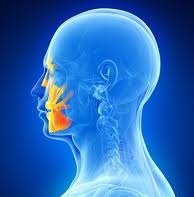
Cancer of the upper jaw and maxillofacial region is a dangerous disease that, due to untimely diagnosis and late treatment of patients for medical care, can be fatal. In Kazakhstan, more than 300 Kazakhstanis are diagnosed with cancer of the maxillofacial and oral region every year.
Causes of the disease and risk factors:
Tumors of the upper jaw and maxillofacial region develop for a long time against the background of purulent-inflammatory diseases of the nasal cavity and paranasal sinuses (sinusitis, ethmoiditis, polyposis-purulent sinusitis, etc.). Unfortunately, patients do not seek medical help in a timely manner or self-medicate. Due to late treatment, doctors are faced with neglected cases, when the diagnosis of cancer is no longer in doubt.
Risk factors include:
Smoking;
Abuse of alcoholic beverages;
hereditary predisposition, genetic mutation;
human papillomavirus;
Weakened immunity;
Chronic diseases of the mucous membranes;
Permanent injury to the mucous membranes.
Symptoms of cancer of the maxillofacial region:
Nasal congestion (during the formation of a tumor from the epithelium of the maxillary sinus);
Difficulty breathing through the nose;
The appearance of mucous secretions with blood clots;
Headaches (discomfort is practically not eliminated after taking painkillers);
Numbness of the skin around the eyes;
loosening of teeth;
The occurrence of lacrimation from the eyes;
Toothache;
Difficulty with facial expressions;
Bad breath;
Sudden weight loss;
Loss of appetite;
Development of wounds in the oral cavity that bleed;
Problems with the closing of the jaws;
The development of exophthalmos (bulging eyes) - occurs at a late stage of cancer development;
Signs of a neurological disorder.
The development of tumors on the mucous tissue of the jaw forms a large neoplasm, which leads to noticeable defects and asymmetry of the face.
Diagnosis of the disease:
Cancer of the upper jaw is rarely diagnosed by an oncologist. As a rule, the first to suspect an oncological process can be a dentist, who is contacted for pain in the teeth, an ophthalmologist (with complaints of vision loss) or an otolaryngologist. After consultation with professionals, a number of diagnostic procedures are prescribed.
Methods that are used in the diagnosis of jaw cancer:
Rhinoscopy;
Scintigraphy;
radiography;
CT;
MRI;
Biopsy of affected tissues;
All types of histological and cytological studies of the biopsy.
It is very important to detect the disease at an early stage. Treatment depends on the location and type of tumor. Most cancers of the maxillofacial region are benign, some types of formations do not require surgical intervention, although most tumors require resection with possible reconstruction.
Treatment:
Treatment of cancer of the maxillofacial region involves combination therapy. As a rule, traditional methods of treatment can be used: surgery, chemotherapy and radiation therapy. A method or set of treatments is developed by a team of doctors depending on the extent of the lesion, the stage of the cancer and the general health of the patient.
Prevention of cancerous tumors of the maxillofacial region:
If there are complaints from the organs of the maxillofacial region (loose teeth, nasal congestion and purulent discharge, the presence of polypous formations), timely contact with specialists is necessary: a dentist, an otorhinolaryngologist, a maxillofacial surgeon, a specialist in head and neck tumors.
If you have any of the above symptoms, contact your doctor immediately. You can also contact the oncologist-otolaryngologist of our center. Here, such complex diseases as cancer of the maxillofacial region, both in the early and late stages, are effectively diagnosed and treated. To make an appointment with a doctor, please call: 8(7172) 702-911.




